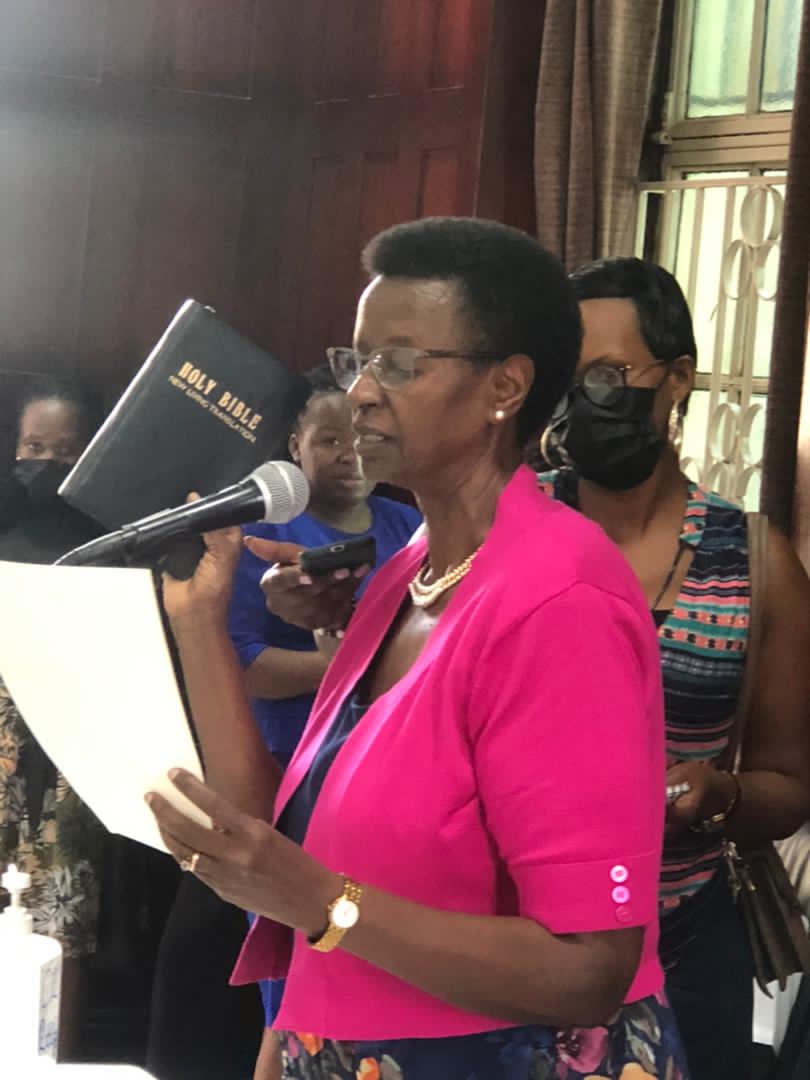By Frank Kamuntu
The Education Service Commission has proposed incorporating training in spiritual intelligence and the fear of God as part of the skills required for teachers undergoing internships. Additionally, the Commission suggested the introduction of a special uniform to distinguish intern teachers from fully qualified ones.
These proposals were made by Violet Kajubiri Froelich, Chairperson of the Education Service Commission, on October 2, 2024, during a presentation before Parliament’s Committee on Education. She was providing the Commission’s views on the National Teachers’ Bill, 2024, which is currently under review.
“There was once a proposal for interns to have a special uniform to identify them in institutions, so supervisors can easily recognize them. Other areas of focus should include fostering holistic student development, spiritual intelligence, and inculcating the fear of God among students,” said Kajubiri.
Her comments followed the Ministry of Education and Sports’ proposal in the Third Schedule of the National Teachers’ Bill, which grants the Ministry exclusive rights to post teacher trainees for internships. This raised concerns given the challenges faced by similar policies in the health sector. Clause 3(2) of the Bill states: “The Ministry shall be responsible for the placement and posting of persons undertaking the internship program,” while Clause 5(2) requires that “a person who intends to undertake an internship shall apply to the Ministry for placement.”
Kajubiri highlighted that the Bill does not clarify who will bear the costs of internship placements, nor does it define the qualifications required for those supervising interns. “There is a need for a budget to support training institutions. It’s also crucial to clarify who qualifies as an intern supervisor. There should be a mechanism for interns to provide feedback, and a Training Manual is needed to define key aspects of internships,” she said.
Several MPs supported the Commission’s concerns, questioning whether the Ministry had assessed the qualifications of the head teachers proposed to supervise interns. Anthony Okullo, MP for Lamwo County, pointed out gaps in teacher qualifications: “Of the 20-30 teachers in some schools, only a few hold degrees, while the rest have certificates or diplomas. How will these head teachers supervise students at degree level?”
The Ministry of Education has proposed a 12-month internship for teachers, to be conducted in accredited institutions, with head teachers overseeing the interns. However, the Education Service Commission warned against allowing the Ministry exclusive rights over placements, citing the ongoing struggles with medical internships. “Annual placements may not be feasible given the number of graduates from various universities. Flexibility is essential,” Kajubiri noted.
The Commission also backed the proposal for all teachers to hold degrees, arguing that this would help professionalize the teaching sector and promote responsibility, integrity, and accountability among teachers. “Professionalizing teaching ensures that it is not seen as a part-time job but a profession requiring real expertise,” Kajubiri explained.
However, some MPs questioned the necessity of requiring degrees for all teachers, especially those in early childhood education. Connie Nakayenze, MP for Mbale City, asked whether a degree is truly needed to teach young children basic skills. “Do we need a degree to teach a 3-year-old how to use a toilet or share toys? Many mothers who haven’t gone to school teach these skills perfectly,” she argued.
Naboth Namanya, MP for Rubabo County, also raised concerns: “What exactly is this Bill trying to address? In other professions, such as medicine and law, there are multiple qualification levels. Why is education pushing for all teachers to have degrees?”
Isaac Etuka, MP for Upper Madi County, criticized the degree requirement as discriminatory. “Other professions, like nursing, allow individuals to start with certificates and upgrade over time. Why should education be different?” he asked.
The Education Service Commission also called for equal pay for teachers if the degree policy is implemented. Kajubiri argued, “Since all teachers will hold university degrees, they should receive equal salaries, regardless of the subjects they teach. Currently, there is a disparity based on qualifications.”
This proposal has sparked debate in Parliament, with MPs weighing the benefits of professionalizing the teaching profession against the practical implications of implementing such a policy.
Have An Advert Or Article You Want Us To Publish? WhatsApp: +256760530830.

